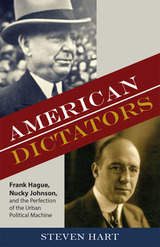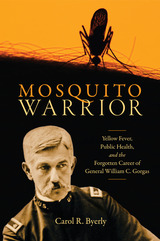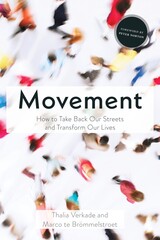
One man was tongue-tied and awkward around women, in many ways a mama's boy at heart, although his reputation for thuggery was well earned. The other was a playboy, full of easy charm and ready jokes, his appetite for high living a matter of public record. One man tolerated gangsters and bootleggers as long as they paid their dues to his organization. The other was effectively a gangster himself, so crooked that he hosted a national gathering of America's most ruthless killers. One man never drank alcohol. The other, from all evidence, seldom drank anything else.
American Dictators is the dual biography of two of America’s greatest political bosses: Frank Hagueand Enoch “Nucky” Johnson. Packed with compelling information and written in an informal, sometimes humorous style, the book shows Hague and Johnson at the peak of their power and the strength of their political machines during the years of Prohibition and the Great Depression. Steven Hart compares how both men used their influence to benefit and punish the local citizenry, amass huge personal fortunes, and sometimes collaborate to trounce their enemies.
Similar in their ruthlessness, both men were very different in appearance and temperament. Hague, the mayor of Jersey City, intimidated presidents and wielded unchallenged power for three decades. He never drank and was happily married to his wife for decades. He also allowed gangsters to run bootlegging and illegal gambling operations as long as they paid protection money. Johnson, the political boss of Atlantic City, and the inspiration for the hit HBO series Boardwalk Empire, presided over corruption as well, but for a shorter period of time. He was notorious for his decadent lifestyle. Essentially a gangster himself, Johnson hosted the infamous Atlantic City conference that fostered the growth of organized crime.
Both Hague and Johnson shrewdly integrated otherwise disenfranchised groups into their machines and gave them a stake in political power. Yet each failed to adapt to changing demographics and circumstances. In American Dictators, Hart paints a balanced portrait of their accomplishments and their failures.

In November 1976, the state of New Jersey embarked upon a bold experiment when the voters approved a referendum to authorize casino gambling in Atlantic City. Expectations were high: the gaming industry could rejuvenate a dying city core, employment would swell, the tax base would broaden and welfare rolls diminish, tourism might spread through the state, and the cruel spectacle of a poverty-stricken community would be eliminated.
The Atlantic City Gamble reports the results of this experiment and evaluates casinos as a tool for economic revitalization, a painless source of revenue. The casinos are enormously profitable—but for whom? The city has paid a huge toll in human and economic hardship. There are 30,000 new jobs, but little spillover into non-casino employment. Crime rates have skyrocketed. Housing has been priced beyond the reach of minority groups and the elderly. In 1982, the casinos paid more than $117 million in state taxes, but much of the projected bonanza to Atlantic City has been swallowed by the industry’s need for expanded municipal services, such as police protection. Fears of the old connection between gambling and organized crime may be exaggerated, but few can deny that the gaming industry—with its immense daily cash flow—harbors a vast potential for corruption.
The state promoted visions of a glorious rebirth, but it failed to provide a governing mechanism that could produce the promised rewards. Would better planning and research enable any government to cope with such instant large-scale business and the political clout it carries? Economic strangulation has motivated at least eight other states to think about letting in casinos. The decisions they make will have far-reaching social and economic consequences, and must be based on a set of facts as accurate and comprehensive as possible. In searching out the lessons of Atlantic City, the authors have provided a sobering glimpse into the intricacies of legalized gambling.

READERS
Browse our collection.
PUBLISHERS
See BiblioVault's publisher services.
STUDENT SERVICES
Files for college accessibility offices.
UChicago Accessibility Resources
home | accessibility | search | about | contact us
BiblioVault ® 2001 - 2024
The University of Chicago Press









